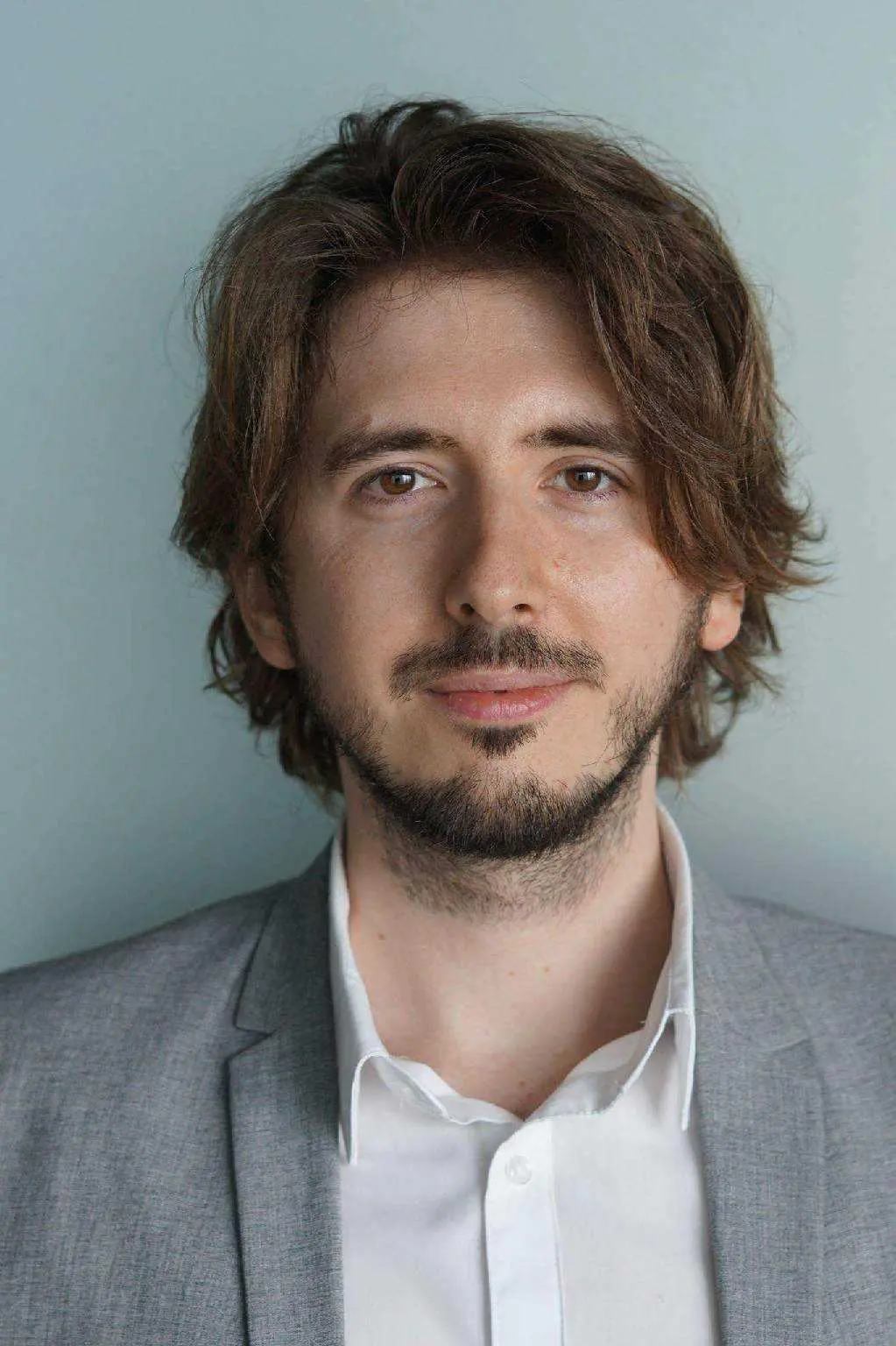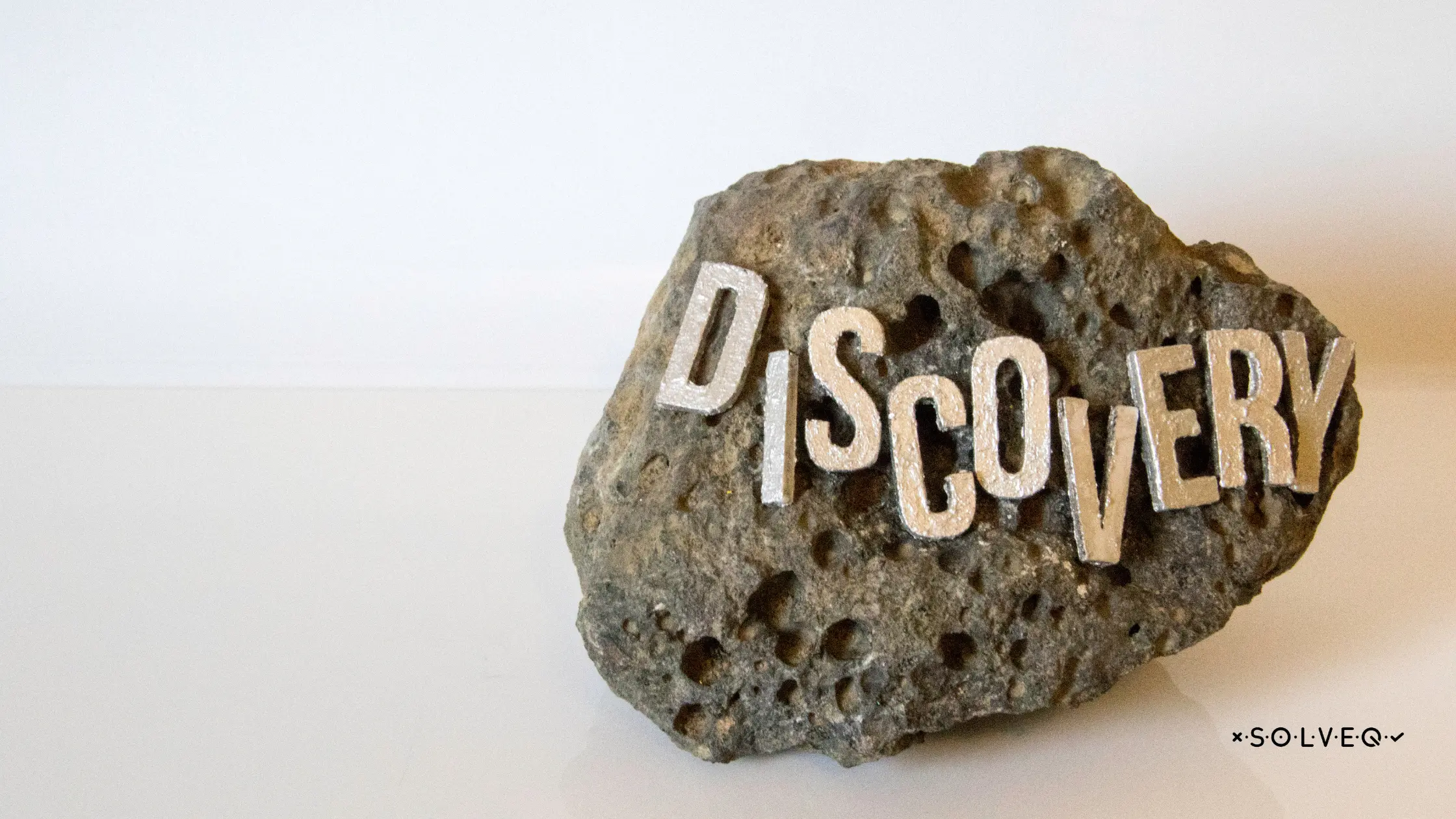How do we run a discovery workshop at SolveQ?
11 May 2023 • 12 min read

Wojciech Frank
Consultant

Starting a project immediately after making a decision can be disastrous and often leads to failure. To ensure success, proper planning and ongoing management are necessary. This is where IT consulting services come in - an indispensable department for any business looking to streamline processes and achieve its goals.
IT consultants offer various services, from managing IT projects to advising on business strategy. They are involved from the beginning of a project all the way through to maintenance and beyond.
Given the complexity of their work, it's impossible to cover everything in one article. That's why we've focused specifically on pre-sales activities, such as conducting discovery workshops. As technical decision-makers in small and medium companies or as project and product owners in larger organizations, understanding the role of IT consultants in the pre-sales process can help you make informed decisions and drive successful outcomes.
Who is the IT Consultant in SolveQ and why is this role crucial for our customer's success
Discover the secret weapon behind SolveQ's client success - the IT Consultant. They play a vital role in connecting technical solutions with business strategy and liaising between clients and development teams. Our Consultants embody the principles of servant leadership, putting clients' needs, issues, vision and purpose first to ensure the success of each project.
With a powerful combination of Agile, project management, and business analytics skills, Consultants collaborate closely with clients from pre-sales to project delivery. As Scrum Masters and Project Managers, they ensure that the project adheres to Scrum principles, guiding the team through the ceremonies and optimizing processes. They manage project timelines, budgets, and resources to deliver top-quality results.
Working closely with clients, Consultants define project goals and objectives, create comprehensive project plans, and monitor progress throughout the project's lifecycle. They mitigate risks and ensure that project deliverables meet high-quality standards. One of their crucial roles is to equip clients with Product Owner competencies, enabling them to drive the project's success.
In SolveQ, we know that no two businesses are the same. That's why our IT Consultants take a personalized approach, tailoring their services to each customer's requirements. With their expert guidance, you can rest assured that your project is safe.
The Role of IT Consultant in the Sales Process
Consultants at SolveQ play a crucial role in the client engagement process. After an initial meeting between a SolveQ sales representative and a potential client, the consultant enters the picture to analyze the client's needs further and identify areas where SolveQ can help them achieve their goals.
During the intake process, consultants conduct discovery workshops with the client to identify specific requirements for the project. The output from these workshops is then used to build a project backlog and create a tailored offer that meets the client's needs. By working closely with clients during the pre-sales phase, SolveQ's consultants ensure that every project is off to a solid start and sets the foundation for a successful partnership.
How We Run Discovery Workshops: Roles, Process and Outcomes
Discovery workshops are the key to unlocking the potential of your project and bringing your ideas to life. These workshops are dynamic and collaborative sessions where stakeholders, product owners, and consultants gather information and define project requirements.
At SolveQ, we understand the importance of these workshops in establishing a clear understanding of what needs to be done, why it needs to be done and how it can be accomplished. Our consultants work closely with you to identify your goals and objectives and any potential challenges that may arise.
Each project is unique, which is why our discovery workshops are tailored to meet the specific needs of each project. However, three essential segments are mandatory for each workshop:
Before the discovery workshop
The success of a discovery workshop lies in its preparation. At SolveQ, our consultants know that gathering information about the project's goals, scope and stakeholders is crucial for a productive session. That's why we take the time to analyze all available customer documentation, project/idea concepts, and other sources of information to ensure that we're well-prepared to guide the conversation and ensure everyone involved is on the same page.
With this solid foundation, our consultants can lead a collaborative session that delves deep into the project's needs and objectives. Depending on the project's complexity, these workshops can range from a few hours to several days. Regardless of the project's scope, our consultants are dedicated to ensuring that the workshop succeeds and sets the stage for a productive partnership between SolveQ and our client.
During the discovery workshop
Get ready to roll up your sleeves! During the workshop, we dive deep into the project's needs and goals. As Consultants, we use a mix of brainstorming, interviews, and prioritization techniques to gather as much information as possible.
Our goal is to challenge the client's ideas, suggest industry standards, and build a vision of the final product that will address their issues. We may ask participants to generate ideas and identify user stories to understand the workflow and key functionalities better.
By the end of the workshop, we'll have a prioritized list of requirements, but more importantly, a high-level or detailed project plan or a prototype that reflects a deep understanding of the customer's needs.
The following steps after the workshop
After the workshop, we refine the project requirements and created a user story backlog that is easy for stakeholders to understand and analyze. Additionally, we prepare a high-level architecture graph to illustrate the target solution. We review the backlog with technical experts to ensure accurate estimation and technical verification. This step is essential for creating the best offer for our client. If all parties agree to move forward, we take on the role of project manager.
Once all parties agree to continue with the project, the Consultant takes the role of a Project Manager (already described earlier).
Requirements Gathering Techniques
During the workshops, Consultants use multiple techniques to obtain customers’ requirements. This ensures not only that we will understand our customer and his vision and will be able to define the idea of the final product, but also it will result in a list of prioritized and well-described and understood requirements that will be crucial in creating the offer for the best project scope that will fill all client’s needs.
- Interviews: This involves 1-on-1 conversations with clients, stakeholders, target users or experts to gather their requirements, preferences, and pain points. Interviews help to understand the customer's needs and expectations deeply. We focus on final satisfaction and achieving excellent relations with our customers. Besides the project, Consultants want to ensure that we will build mutual trust and a full understanding of all critical aspects.
- Focus groups: It is a facilitated discussion with a small group of stakeholders or users. It helps explore user preferences, expectations, and attitudes towards the product. A Consultant leads the discussion and collects feedback from the group. It is essential to know all perspectives and find common points that will help design a solution satisfactory for all parties involved.
- Observation: Observing customers using an existing system or workflow helps to understand their needs, challenges, and opportunities for improvement. This technique can be used to identify user pain points, inefficient processes and opportunities for innovation. This technique often connects with process mapping and architecture diagramming. This way, consultants can visualize needs and issues, understand the workflow and suggest the best solutions.
- Brainstorming sessions: These sessions are a collaborative approach where stakeholders come together to generate ideas and requirements for the system. The facilitator (Consultant) encourages creativity and open communication to create innovative ideas and potential solutions that can be later verified, selected, prioritized, etc.
- Document analysis: This technique involves reviewing existing documents such as business plans, user manuals, project drafts and specifications to gather specific requirements. This can be useful when requirements and ideas are already documented.
- Use case analysis: Use case analysis involves identifying how users interact with the system and the scenarios or use cases that the system needs to support. This technique helps to ensure that the system meets the user's needs and requirements.
- Requirement elicitation sessions: These are sessions where stakeholders come together with a Consultant to identify and prioritize system requirements. The Consultant guides the discussion and collaborates with the client to define the requirements and prioritize them. At this point, many techniques can be helpful, like e.g. MoSCoW method (to define the requirements and determine if the solution ‘Must have’, ‘Should have’, ‘Could have’ or ‘Won’t have’ a specific functionality).
- Storyboarding: Storyboarding involves creating visual representations of the system's user interface and interactions to elicit stakeholder feedback. This technique helps to visualize the user experience and identify potential issues or areas for improvement.
After a successful workshop using all the above techniques, our client can expect a specific outcome. First of all, a well-defined and described backlog in the form of user stories that have been estimated by internal Estimation Boards consisting of technical domain experts. Second of all, a well-tailored offer that will fit customers' needs and will address all discussed topics, issues and ideas.
Summary
Effective project planning is the key to success, and at SolveQ, we take this very seriously. Our discovery workshops are meticulously crafted by our expert Consultants, serving as the foundation of any IT project we develop. But even if you're not quite ready for a full-blown project, our workshops can still provide immense value, especially for startups and legacy projects. So if you're looking for a partner who can help you navigate the complexities of project planning, look no further than SolveQ.
Contact us today and let us show you how we can help turn your vision into reality.
Share:
Looking for expert development team?
Schedule a call with Tech Consultant

Wojciech Frank
Consultant
A true people person who combines his technical knowledge with strong management and personal relationship skills. In his free time, he is a great enthusiast of playing video games.